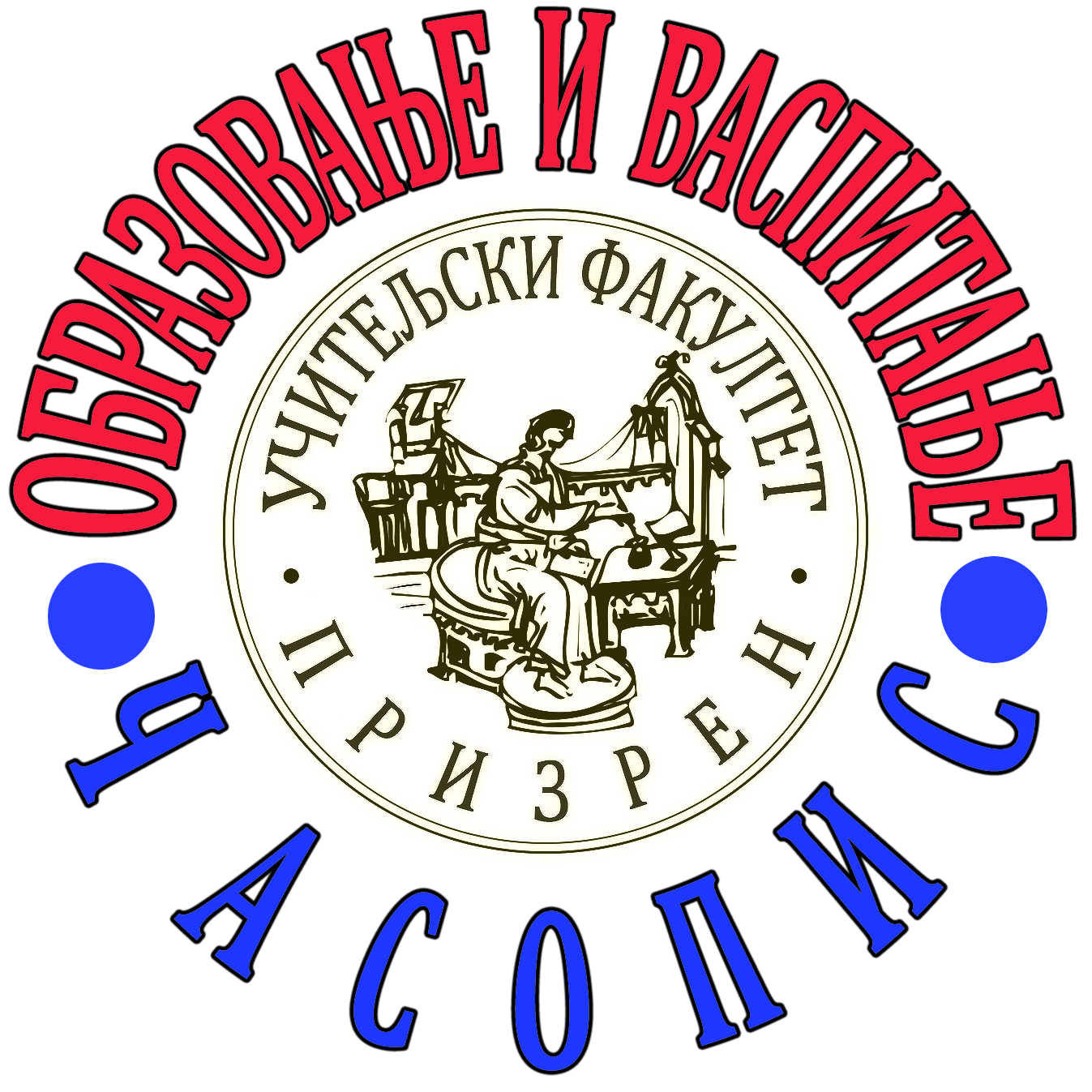FORMIRANJE IDENTITETA U PROCESU INKLUZIVNOG VASPITANJA I OBRAZOVANJA
Marković Emilija I.a, Krulj Jelena R.b, Lazović Nataša R.c
abUniverzitet u Prištini sa privremenim sedištem u Kosovskoj Mitrovici, Učiteljski fakultet
cAkademija Južna Srbija – Visoka škola za vaspitače Bujanovac
e-adresa: emilija.markovic@pr.ac.rs, jelena.krulj@pr.ac.rs, lazovicn991@gmail.com
e-adresa: emilija.markovic@pr.ac.rs, jelena.krulj@pr.ac.rs, lazovicn991@gmail.com
jezik rada: srpski
vrsta rada: pregledni članak
DOI: 10.5937/obrvas18-46666
objavljen u SCIndeksu: 25.01.2024.
vrsta rada: pregledni članak
DOI: 10.5937/obrvas18-46666
objavljen u SCIndeksu: 25.01.2024.
Rezime
Identitet predstavlja osećanje celovitosti ličnosti uprkos promena u ličnosti i oko nje. Generalno, možemo govoriti o postojanju ličnog i socijalnog identiteta – slike o sebi kao pojedincu u okviru grupe kojoj pripadamo ili opažanja sebe u kontekstu zajedničkog sa članovima naše grupe, ali i sa različitostima u odnosu na druge grupe. Pri tom, individue poseduju više ličnih i socijalnih identiteta u zavisnosti od toga koja nam je socijalna grupa najznačajnija u datom trenutku. Formiranje identiteta je proces koji, iako najintenzivniji u periodu adolescencije, započinje u detinjstvu. Poseban značaj u formiranju identiteta imaju osobe iz najbližeg okruženja deteta, prevashodno porodica, a potom i drugi agensi socijalizacije poput vaspitača, učitelja, vršnjaka, mas-medija itd. Inkluzivno vaspitanje i obrazovanje odnosi se na rad sa decom sa posebnim potrebama što podrazumeva socijalnu inkluziju. Dete ulazi u različite socijalne odnose koji utiču na njegov lični i socijalni identitet. Vršnjačke grupe u vrtićima, razredi u školama predstavljaju specifične socijalne zajednice koje obavljaju svoje socijalne uloge. Vaspitno-obrazovne institucije oslanjaju se na zajedničke vrednosti i obrasce i pomažu deci da se na smisleni način odnose jedni prema drugima i prema društvu u celini. Centralno pitanje jeste šta inkluzija znači za pojedinca. Kako se identitet zasniva na slici o sebi, a ona se uveliko formira na osnovu odnosa drugih prema nama, prihvatanje deteta sa posebnim potrebama od strane druge dece uveliko utiče na elemente identiteta koji se formira. Stoga je cilj ovog rada analiza potencijala uloge socijalnih odnosa u procesu inkluzivnog vaspitanja i obrazovanja na formiranje identiteta i njegovih konsekvenci poput samopoštovanja, osećanja samoefikasnosti, adekvatnog odnosa sa drugima itd.
Ključne reči: identitet, formiranje identiteta, inkluzivno vaspitanje i obrazovanje, slika o sebi
Reference
| Arnold, j., Silvester, J., Patterson, F., Robertson, I., Cooper, C., Burnes, B. (2005). Work Psychology, Understanding Human Behavior in the Workplace. New Jersey: Prentice Hall | |
| Boyce, A. (1999). Social and emotional effects of inclusion in special education and inclusion classes. Theses and Disertations. New Jersey:Rowan University | |
| Charry-Bressan, T. (1984). Social identification and psychological group formation. In H. Tajfel (Ed.) The social dimension: European developments in social psychology (pp.518-538) | |
| Charry-Bressan, L., Torres-Aya, L., Rodriguez-Cardenas, E.D.(2023). Educacion inclusive e identidad en estudiantes de secundaria con discapacidad auditiva, Revista Electronica Educare, 27(2), 1-16 | |
| Code, R.J., Zaparyniuk, E.N. (2010). Social Identities, Group Formation, and the Analysis of Online Communities. In Subhasish Dasgupta (Ed.) Social Computing: Concepts, Methodologies, Tools, and Applications (pp.1348-1361). IGI Global | |
| Cologon, K. (2019). Toward inclusive education: A necessary process of transformation. Report written by Dr Cathy Cologon, Macquaire University for Children and Young People with Disabilities Australia (CYDA) | |
| Cote, E.J. (2009). Identity Formation and Self-development in Adolescence. In R.M. Lerner&L. Steinberg (Eds.), Handbook of adolescent psychology: Individual bases of adolescent development, pp.266-304. John Wiley&Sons, Inc | |
| Dalgaard, T.N., Bondebjerg, A., Viinholt, A.C.B., Filges, T. (2022). The effects of inclusion on academic achievement, socioemotional development and wellbeing of children with special needs, Campbell Systematic reviews, 18(4), 1291-1306 | |
| Đurić-Zdravković, A., Japundža-Milisavljević, M., Gagić, S. (2016). Socijalna inkluzija osoba s teškoćama u mentalnom razvoju osnovne definicijske nedoumice. U: A. Jugović, M. Japundža-Milisavljević, A. Grbović (Ur.). Socijalna inkluzija dece sa rzvojnim smetnjama i problemima u ponašanju. (161-169). Beograd: Fakultet za specijalnu edukaciju i rehabilitaciju | |
| Griffiths, M.(1993). Self-identity and Self-esteem: achieving equality in education, Oxford Review of Education, 19(3), 301-317 | |
| Erikson, H.E. (2008). Identitet I životni ciklus. Beograd: Zavod za udžbenike | |
| Felder, F. (2019). Inclusive education, the dilemma of identity and the common good, Theory and Research in Education, 17(2), 213-228 | |
| Jodrell, D. (2010). Social identity and self-efficiency concern to disability labels, Psychology Teaching Review, 16(2), 111-121 | |
| Kamps, L.C., Berman, L.S. (2011). Body Image and Identity Formation: the Role of Identity Distress. Revista Latinoamericana de Psihologia, 43(2), 267-277 | |
| Katz, H.J., Miller, A.F. (2016). Defining Diversity and adapting Inclusion Strategies on a Global Scale, Practitioner, 48(3), 41-47 | |
| Kulshrestha, K.A., Sharma, P. (2021). Role of Education and Identity for Quality Education, Education, Identity and Quality Education, 10(3), 41-48 | |
| Hattie, J. (2008). Visible Learning: A Synthesis of Over 800 Meta-Analysis Relating to Achieving. London: Routledge | |
| Lawrence, D.(1996). Enchasing Self-esteem in the Classroom. London: Paul Chapman | |
| Lazović, S.T., Lukić, M.A., Vidojević, B.J. (2022). Sociodemografski prediktori stavova prema osobama sa smetnjama u intelektualnom razvoju, Zbornik radova Učiteljskog fakulteta Prizren-Leposavić, 17, 135-145 | |
| Leien, A., Arcidiakono, F., Baucal, A. (2021). The Dilemma of Inclusive Education: Inclusion for Some or Inclusion for All, Frontiers in Psychology, 12, 121-130 | |
| Lerner, M.R., Steinberg, L. (2009). Handbook of Adolescent Psychology. New York: John Wiley&Sons, Inc | |
| Luyckx, K., Goossens, L., Soenens, B. (2006). A developmental contextual perspective on identity construction in emerging adulthood: Change dynamics in commitment formation and commitment evaluation. Developmental psychology, 42, 366-380 | |
| Marković, E. (2019). Motivacija i učenje. Leposavić: Učiteljski fakultet u Prizrenu-Leposaviću | |
| McMaster, Ch. (2014). Elements of Inclusion: Findings from the Field, Kairaranga, 15(1), 42-49 | |
| Milenović, Ž. (2012). Motivacija nastavnika za rad u inkluzivnoj nastavi, Zbornik radova Učiteljskog fakulteta Prizren-Leposavić, 6, 89-101 | |
| Montgomery, M.S. (1994). Self/concept and Children with Learning Disabilities: Observer-Child Concordance across six Content-Dependent Domains, Journal of Learning Disabilities, 27, 254-263 | |
| Postmes, T., Baray, G., Haslam, S. A., Morton, T., Swaab, R. (2006). The dynamics of personal and social identity formation. In T. Postmes & J. Jetten (Eds.), Individuality and the group: Advances in social identity (PP. 215-236) London: Sage Publication, Inc | |
| Reynolds, J.K. (2015). International Encyclopedia of the Social & Behvioral Science. Amsterdam: Elsevier Ltd | |
| Roberts, W.B., Donahue, M.E. (1994). One Personality, Multiple Selves: Integrating Personality and Social Roles. Journal of Personality, 62(2), 200-218 | |
| Schmidt, M., Čagran, B. (2008).Self-concept of Students in Inclusive Settings, International Journal of Special Education, 23(1), 8-17 | |
| Sedmak, C. (2010). Inklusion und Exklusion in Europa. In Klaus E., Sedmak C., Drueke R., et al (eds.) Identitat und Inklusion Im europaischen Sozialraum. Wiesbaden: VS Verlag fur Sozialwissenschaften, pp. 147-164 | |
| Simon, B., Trotschel, R. (2008). Self and Social Identity. New Jersey: Blackwell Publishing | |
| Sinov, V., Fert, O. (2021). Influence of self-esteem on relationships in inclusive educational environment, Koninskie Studia Spoleczno-Ekonomiczne, 7(2), 155/167 | |
| Stjepanović-Zaharijevski, D., Gavrilović, D. (2010). Identiteti i porodične orjentacije na Balkanu, Sociologija, LII(1), 23-40 | |
| Stone, S. (2018). Teaching for Belonging-Inclusive and Identity Responsive Instruction. Toronto, CA: HUMBER University | |
| Taylor, S.E., Peplay, L.A., Sears, D.O. (2003). Social psychology. New Yersey: Prentice Hall | |
| Twenge, M.J., Campbell, W.K. (2010). Birth cohort differences in the Monitoring the Future dataset and elsewhere: Further evidence for Generation. Perspectives in Psychological Science, 5, 81-88 | |
| Van Doeselaar, L. (2020). Identity formation in adolescence and young adulthood: Bringing together different pieces of the puzzle. Iskamp | |
| Vignoles, V.L., Schwartz, S.J., Luyckx, K. (2011). Introduction: Toward an integrative view if identity. In S.J. Schwartz, K. Luyckx,& V.L. Vignoles (Eds.), Handbook of identity theory and research (pp. 1-27). Springer Science+Business Media | |
| Vujačić, M. (2011). Uloge nastavnika u inkluzivnom obrazovanju, Pedagogija, LXVI(3), 384-394 | |
| Vuletić, S., Todorović, V. (2016). Uloga komunikacije u procesu formiranja kulturnog identiteta, Medijski dijalozi, 9(3), 91-104 |
